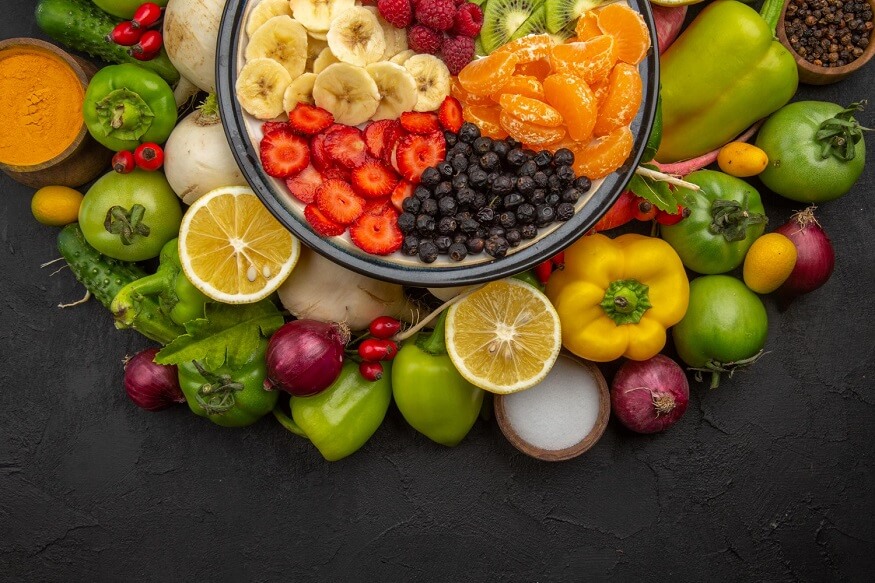As parents, our primary concern is to provide our children with the most nutritious and safe diet. Lately, a significant shift is being observed as more families are opting for non-dairy milk as an alternative to cow’s milk. This shift may be driven by lactose intolerance, allergies, ethical reasons, or just a lifestyle choice. But is non-dairy milk an appropriate choice for your children? Here is everything you need to know.
Also Read: Why is World Milk Day celebrated?
What is non-dairy milk
Non-dairy milk is a plant-based beverage that is made from a variety of different ingredients, including almonds, soy, oats, rice, and coconut. It is a popular alternative to dairy milk for people who are lactose intolerant, allergic to dairy, or follow a vegan or plant-based diet. Non-dairy milk is typically made by blending the plant ingredient with water and then straining out the solids. The resulting liquid is often fortified with nutrients such as calcium, vitamin D, and vitamin B12.
Also Read: Guide to Braces for Kids – Dental health for kids with braces
Types of non-dairy milk
Here are some of the most popular types of non-dairy milk:
Soy milk is the most nutritionally similar non-dairy milk to cow’s milk. It contains a comparable amount of protein and is often fortified with calcium, vitamin D, and vitamin B12. However, some children may not prefer the distinctive taste of soy milk.
Almond milk and coconut milk are two other popular alternatives. While they are lower in calories and saturated fats, they also provide less protein. These non-dairy milks are generally fortified with vitamins and minerals to enhance their nutritional value. Their smooth texture and mild taste can be more appealing to some kids.
Oat milk and rice milk are great options for children with allergies, as they are generally well tolerated. However, they are low in protein and high in carbohydrates. Oat milk is particularly high in fiber and has a creamier texture than other plant-based milks, making it a good choice for children transitioning from cow’s milk.
The nutritional profile of the milk matters, but so does your child’s overall diet. If they are getting adequate protein, vitamins, and minerals from other food sources, the type of milk they consume becomes less critical. However, for children who rely on milk as a primary source of nutrients, finding a fortified non-dairy alternative that mirrors the nutritional content of cow’s milk is essential.
Also Read: Impact of sugar on children: Effects, Precautions
Benefits of Non-dairy milk
Non-dairy milk, derived from plant sources, offers several potential benefits for children, especially when it is carefully selected and integrated into a balanced diet. Here are some of the key benefits:
Allergy and Intolerance Solution: Non-dairy milk is a fantastic alternative for children who are lactose intolerant or have an allergy to cow’s milk. Options such as soy milk, almond milk, oat milk, and others do not contain lactose or dairy proteins, reducing the risk of allergic reactions or discomfort.
Rich in Essential Nutrients: Many types of non-dairy milk are fortified with essential nutrients like calcium, vitamin D, and vitamin B12, which are important for a child’s growth and development. For example, soy milk often contains similar levels of protein to cow’s milk, making it a good option for maintaining protein intake.
Reduced Saturated Fat: Non-dairy milks generally contain less saturated fat than full-fat cow’s milk. While some dietary fat is necessary for children’s growth and brain development, it’s beneficial to limit their intake of saturated fats specifically, as it can lead to unhealthy weight gain and other health problems later in life.
Diverse Flavors and Tastes: Non-dairy milk comes in various flavors, giving children a diverse taste palette. The unique flavors of almond, oat, soy, and rice milk may appeal to picky eaters, encouraging them to get the nutrients they need from milk.
Environmental Considerations: As children grow, teaching them about environmental responsibility is important. Choosing plant-based milk can be a way to demonstrate concern for animal welfare and the environment, as dairy farming has a more substantial environmental impact compared to most plant-based milk production.
High in Fiber and Low in Sugar: Certain types of non-dairy milk, like oat milk, are high in dietary fiber, promoting good digestive health. Additionally, by choosing unsweetened non-dairy milk, you can help manage your child’s sugar intake.
Remember, while non-dairy milk can be beneficial, it shouldn’t be the primary source of nutrition for infants under one year, who need breast milk or formula. It’s also important to ensure your child is getting enough fat in their diet, especially in the early years. Always consult with a pediatrician or dietitian before making major changes to your child’s diet to ensure they’re getting the balanced nutrition they need.
Also Read: Which nutrients help our muscle growth?
Selecting Non-dairy milk for children
When selecting non-dairy milk, avoid those with added sugars. Some brands add sweeteners to improve the taste, which can contribute to excess sugar intake. Look for unsweetened versions and check the ingredient list to make sure it’s free from unnecessary additives.
It’s also important to ensure your child is getting enough fat in their diet, particularly in the early years when it is crucial for brain development. If your chosen non-dairy milk is low in fat, you may need to supplement your child’s diet with other healthy fat sources.
Lastly, consult with a pediatrician or a dietitian before making significant changes to your child’s diet. This can help ensure that your child is receiving a balanced diet that supports their growth and development.
Non-dairy milk can be a nutritious part of a child’s diet, provided that it is chosen carefully and is part of a balanced and varied diet. Remember, every child is unique and has different nutritional needs. Be sure to discuss any dietary changes with a healthcare provider to ensure your child is getting the nutrients they need to grow and thrive.
Also Read: Which nutrients help our hair growth?
The information provided on this website is not a substitute for professional medical advice. EuroSchool encourages you to consult with a qualified healthcare professional for any health concerns you may have. The information on this website is not intended to diagnose, treat, cure, or prevent any disease.
EuroSchool teaches children about the importance of eating healthy foods and making good food choices. We do this through a variety of activities, such as cooking classes, tastings, and discussions.










